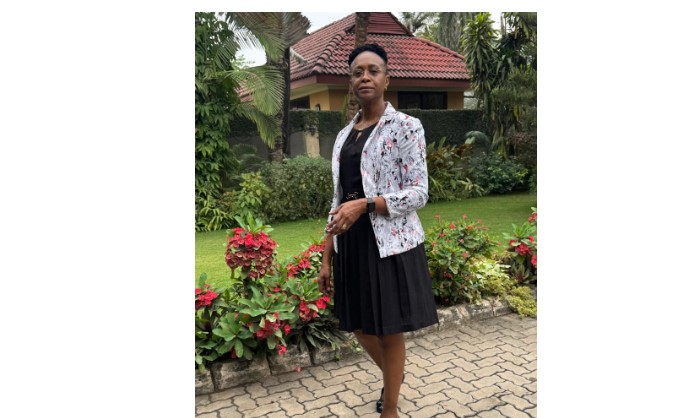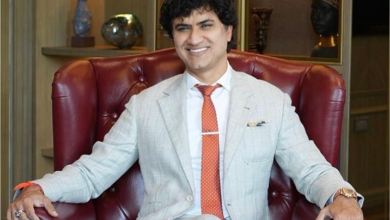Veni: Builds a generation of women leaders

DAR ES SALAAM: AFTER years of mentoring and giving a voice to thousands of women leaders and entrepreneurs across East Africa, governance and leadership expert Veni Swai is not about to stop. Her mission is far from over; she wants more women at the policy table.
“The first time I got women in a room and asked them to pick a chairperson, they looked at me as if I was crazy,” recalls Ms Veni Swai, 55, Senior Programme Manager of the Friedrich Naumann Foundation for Freedom in Tanzania.
“There was no man in the room, yet in their minds, they believed the chairperson had to be a man,” she said Veni told the women that one of them had to lead, someone to speak for them, to represent their collective voice. The women squirmed, whispered, and hesitated.
Then, slowly, they began to discuss openly and finally chose one of their own. That was more than 21 years ago, when Veni had just joined the Friedrich Naumann Foundation, a German political foundation working across Africa. What she witnessed that day became a turning point in her life.
“I have seen many times, even today, that whenever there are men in the room and you ask women to vote for a leader, they will choose the men even if it’s only one man among them,” she said.
“It’s not that men are more qualified, but because the way we have been socialised has taught us that men must lead.” That mindset, Veni says, is what keeps her awake at night. It is also what fuels her daily drive.
She wants women to find their voices loud, fearless voices that address national issues beyond what are narrowly labelled as women’s issues.
“There are important issues in every society such as poverty, healthcare, education, environmental management, the business climate,” she said Adding, “All these effects everyone, but women bear the brunt.
Yet when they speak, they often focus on subsets like their children, period poverty, or Female Genital Mutilation (FGM). I wanted them to talk about the bigger picture so that the problems are solved in a big way.” Born and raised in Moshi, Kilimanjaro Region, Veni grew up watching her mother take charge, speaking up, making decisions, and leading other women.
Her mother was active in the women’s department of the Evangelical Lutheran Church (ELCT), and their retreats often turned into mission-driven projects.
“They would leave home for a week and return having built something tangible,” Veni recalls. “Sometimes it was even a new church building. Women did that they built, contributed, and proved that they could handle big things.”
For young Veni, this was nothing short of magic. The image of women building with their own hands planted a deep belief that women could transform communities. But as she grew up, she noticed how often women’s voices were missing from decision-making spaces.
That silence unsettled her and sowed the seed of her lifelong mission. Her early work involved mentoring youth and young women through political and social organisations. Veni created safe spaces for them to speak, question, and lead.
“Through those programmes, young women began hearing their own voices,” she says.
“And the echo that came back was powerful.” One of her proudest milestones was Sauti Yangu, a mentorship group of 23 young women. “Ninety-five per cent of them are thriving today,” she said. “Many run NGOs and businesses that continue to serve communities across Tanzania.”
That success convinced her to expand her reach. “If my voice could help 23 young people rise,” she thought, “why not hundreds more why not thousands?” Her attention later turned to women journalists.
A survey had confirmed what she already suspected most editors were men, and women were often sidelined to “soft” stories. “It bothered me,” she says.
“They were doing the daily grind, yet the decision-making power stayed in male hands.” Instead of accepting it, Veni designed training programmes to help women journalists gain confidence and sharpen investigative skills. The impact was striking.
Over three years, women from Tanzania, Kenya, West Africa, and Germany collaborated on cross-border investigations. “They went from waiting to be assigned stories to assigning themselves,” she says.
“Some even became national voices.” She fondly remembers Faith Zaba from Zimbabwe, one of her mentees, who now calls herself “the voice of the voiceless.” Veni’s influence also reached the political arena. With her background in political science, she understood both the challenges and the urgency of women’s participation in politics. “I worked with them to change their mindset,” she says.
“They learned that women can do politics strategically and professionally and that they have every right to participate.” Many of those she mentored went on to hold public office, advocating for equality and inclusion with newfound confidence. Even outside her formal role as Senior Programme Manager, Veni continues to dedicate her time to mentorship programmes that help young women thrive whether in entrepreneurship, civil society, or self-employment.
“I want them to know they can figure anything out,” she says.
“They just have to commit and give it their all. There is always a way. I exist to show them the way.” Her mentorship network now spans countries and generations. Many of her alumni are mentoring others, creating a ripple effect that reaches far beyond Tanzania. When asked if it might be time to slow down, she laughs softly. “Retirement is not in my vocabulary,” she says.
“As long as I have knowledge to share and energy to do it, I will continue to mentor, teach, and lift others up.” She adds thoughtfully, “I’m also learning, I’m a lifelong learner. I want to keep acquiring knowledge to understand the world better.”
“When you silence the mind, it stops existing. And when it stops existing, life itself stops.
That’s why I keep passing on what I have learned I want others to discover that they can do far more than they think possible,” Veni said In many ways, her journey continues the legacy of her mother the same spirit that once built churches brick by brick now builds confidence, opportunity, and leadership in women and youth across East Africa. For Veni Swai, raising voices is not just a calling, it is a way of life. And she has no intention of stopping anytime soon.





